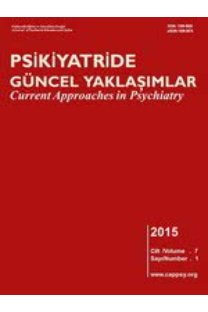Yaşam Boyu Gelişim Yaklaşımı
Yaşam boyu gelişim yaklaşımı, bireyin doğumla başlayıp ölümle sona eren yaşamındaki gelişimini inceler. Bu yaklaşım psikoloji, psikiyatri, antropoloji, sosyoloji ve geriatri gibi çok sayıda disiplini ilgilendiren disiplinler arası bir yaklaşımdır. Yaşam boyu gelişim yaklaşımında temel varsayım, gelişimin yetişkinlik sürecinde tamamlanmadığı, bütün yaşam sürecinde devam ettiğidir. Yaşam boyu gelişim yaklaşımı, tarihsel süreçte gelişmiştir. Yaşam boyu gelişim yaklaşımı açısından gelişim, doğumla başlayan ve ölümle sonuçlanan süreçteki değişimleri içerir. Gelişim karmaşık bir süreçtir, ölümü ve ölmeyi de içinde barındırır. Yaşam boyu gelişim yaklaşımı, insan gelişimini gelişim dönemleri kapsamında ele alır. Yaşam boyu gelişim yaklaşımına göre, yaş temelli açıklamaların yapılmadığı toplumlara doğru gidilmektedir. Yaşam boyu gelişimde, kalıtsala karşı deneyim, sürekliliğe karşı süreksizlik, değişime karşı değişmezlik önemli konulardır. Yaşam boyu gelişim araştırmalarında, bireysel gelişimin üç alanında bilgi toplanmaktadır ve üretilmektedir.
Anahtar Kelimeler:
gelişim, yaşlılık, yaşamboyu gelişim yaklaşımı, psikoloji
Life Span Developmental Approach
The Life Span Developmental Approach examines development of individuals which occurs from birth to death. Life span developmental approach is a multi-disciplinary approach related with disciplines like psychology, psychiatry, sociology, anthropology and geriatrics that indicates the fact that development is not completed in adulthood, it continues during the life course. Development is a complex process that consists of dying and death. This approach carefully investigates the development of individuals with respect to developmental stages. This developmental approach suggests that scientific disciplines should not explain developmental facts only with age changes. Along with aging, cognitive, biological, and socioemotional development throughout life should also be considered to provide a reasonable and acceptable context, guideposts, and reasonable expectations for the person. There are three important subjects whom life span developmental approach deals with. These are nature vs nurture, continuity vs discontinuity, and change vs stability. Researchers using life span developmental approach gather and produce knowledge on these three most important domains of individual development with their unique scientific methodology.
Keywords:
development, aging, life span developmental approach, psychology,
___
- Miller PH. Theories of Developmental Psychology. New York, W.H. Freeman, 1993.
- Baltes PB, Nesselroade JR. Paradigm lost and paradigm regained: Critique of Dannefer's portrayal oflife-span developmental psychology. Am Sociol Rev 1984; 49:841-847.
- Baltes PB, Reese HW, Lipsitt LP. Life-span developmental psychology. Annu Rev Psychol 1980; 31:65-110.
- Baltes PB, Reese HW, Nesselroade JR. Life-Span Developmental Psychology: Introduction to Research Methods. Monterey, CA, Brooks Cole Press, 1977.
- Baltes PB, Staudinger, UM. Wisdom: A metaheuristic (pragmatic) to orchestrate mind and virtue toward excellence. Am Psychol 2000; 55:122-136.
- Neugarten DA. The Meanings of Age: Selected Papers of Bernice L. Neugarten. Chicago, University of Chicago Press, 1996.
- Honzık MP. Life span development. Annu Rev Psychol 1985; 35:309-331.
- Papalia DE, Olds SW, Feldman RD. Human Development, 9th ed. New York, Mc Graw Hill, 2004.
- Bee H. Lifespan Development. New York, Harper Collins, 1994.
- Baltes PB. Theoritical propositons of life-span developmental psychology on the dynamics between growth and decline. Dev Psychol 1987; 23:611-626.
- Santrock JW. Life Span Development. London, Brown Benchmark Publishers, 1997.
- Madey SF. Toward a social psychology of aging. Basic Appl Soc Psychol 2000; 22:133-135.
- Broderick PC, Blewitt P. The Life Span Human Development for Helping Professionals. New Jersey, Merrill Prentice Hall, 2003.
- Erikson EH. Childhood and Society. New York, Norton, 1964.
- Mayo JA. Life analysis: Using life-story narratives in teaching life-span developmental psychology. Journal of Constructivist Psychology 2001; 14:25-41.
- Freund AM, Nikitin J, Ritter JO. Psychological conseqeuences of longevity: The increasing importance of self-regulation in old age. Hum Dev 2009; 52:1-37.
- Hoppmann CA, Coats AH, Fields FB. Goals and everyday problem solving: Examining the link between age-related goals and problem-solving strategy use. Neuropsychol Dev Cogn B Aging Neuropsychol Cogn 2008; 15:401-423.
- Otani H, Libkuman TM, Widner TL, Graves EI. Memory for emotionally arousing stimuli: A comparison of younger and older adults. J Gen Psychol 2007; 134:23-42.
- Jhon OP, Gross JJ. Healthy and unhealthy emotion regulation: Personality processes, ındividual differences, and life span development. J Pers 2004; 72:1302-1333.
- Patrick JH, Stahl ST. Understanding disordered eating at midlife and late life. J Gen Psychol 2009; 136:5-20.
- Ris MD, Beebe DW. Neurodevelopmental outcomes of children with low-grade gliomas. Dev Disabil Res Rev 2008; 14:196-202.
- Wadsworth J, Hernandez NE, Kampfe CM, Smith SM. Economic outcome of employment for older participants in rehabilitation services funded by the rehabilitation services administration. Rehabil Couns Bull 2008; 51:107-117.
- Smerglia, VL, Miller NB, Sotnak DL, Geiss, CA. Social support and adjustment to caring for elder family members: A multi-study analysis. Aging Ment Health 2007; 11:205-217.
- Eryılmaz A, İlhan T. What are my golden ages wıth respect to p erceıved control and self-esteem. Paper presented at World Conference of International Association of Child and Adolsecent Psychiarty and Allied Disciplines (IACAPAP) Conference, Ap- ril 30- May 2008 İstanbul, Turkey. Kongre Özet Kitabı sayfa:34.
- Eryılmaz A. Algılanan kontrol ve gelişim dönemleri açısından barışa yönelik tutumla- rın incelenmesi: Altın çağım (36-45). Ulusal 15. Psikoloji Kongresi, İstanbul Üniver- sitesi, 3-5 Eylül 2008 İstanbul, Türkiye. Kongre Özet Kitabı sayfa:17.
- Eryılmaz A. Gelişimsel perspektiften öfkenin dinamiği: Düşünce davranış çelişkisi. Ulusal 15. Psikoloji Kongresi, İstanbul Üniversitesi, 3-5 Eylül 2008 İstanbul, Türki- ye. Kongre Özet Kitabı sayfa:25.
- Eryılmaz A. Perceived control in starting romantic intimacy at adolescence and young adulthood periods paper presented at the Xth Conference of European Association for Research on Adolescence, May 2–6 2006 Antalya, Turkey. Kongre Özet Kitabı say- fa:13.
- Eryılmaz A. Barışa yönelik tutumların gelişimi: Kişilik özelliklerinin, cinsiyetin ve yaş grubunun etkisi. Türk Geriatri Dergisi (in press).
- ISSN: 1309-0658
- Yayın Aralığı: Yılda 4 Sayı
- Başlangıç: 2009
- Yayıncı: Psikiyatride Güncel Yaklaşımlar
Sayıdaki Diğer Makaleler
Terapötik İlişkide İnsan Faktörü
Ayşe Koyun, Lale Taşkın, Füsun Terzioğlu
İnternet, Siberseks ve Sadakatsizlik
Gebelikte Depresyon: Sıklık, Risk Faktörleri ve Tedavisi
Kıymet Yeşilçiçek Çalık, Songül Aktaş
Kimlik Gelişimi ve Kimlik Biçimlenmesi: Kuramsal Bir Değerlendirme
Dikkat Eksikliği Hiperaktivite Bozukluğunun Genetik Boyutu
Gizem Melissa Akgün, Evren Tufan, Nihal Yurteri, Ayten Erdoğan
